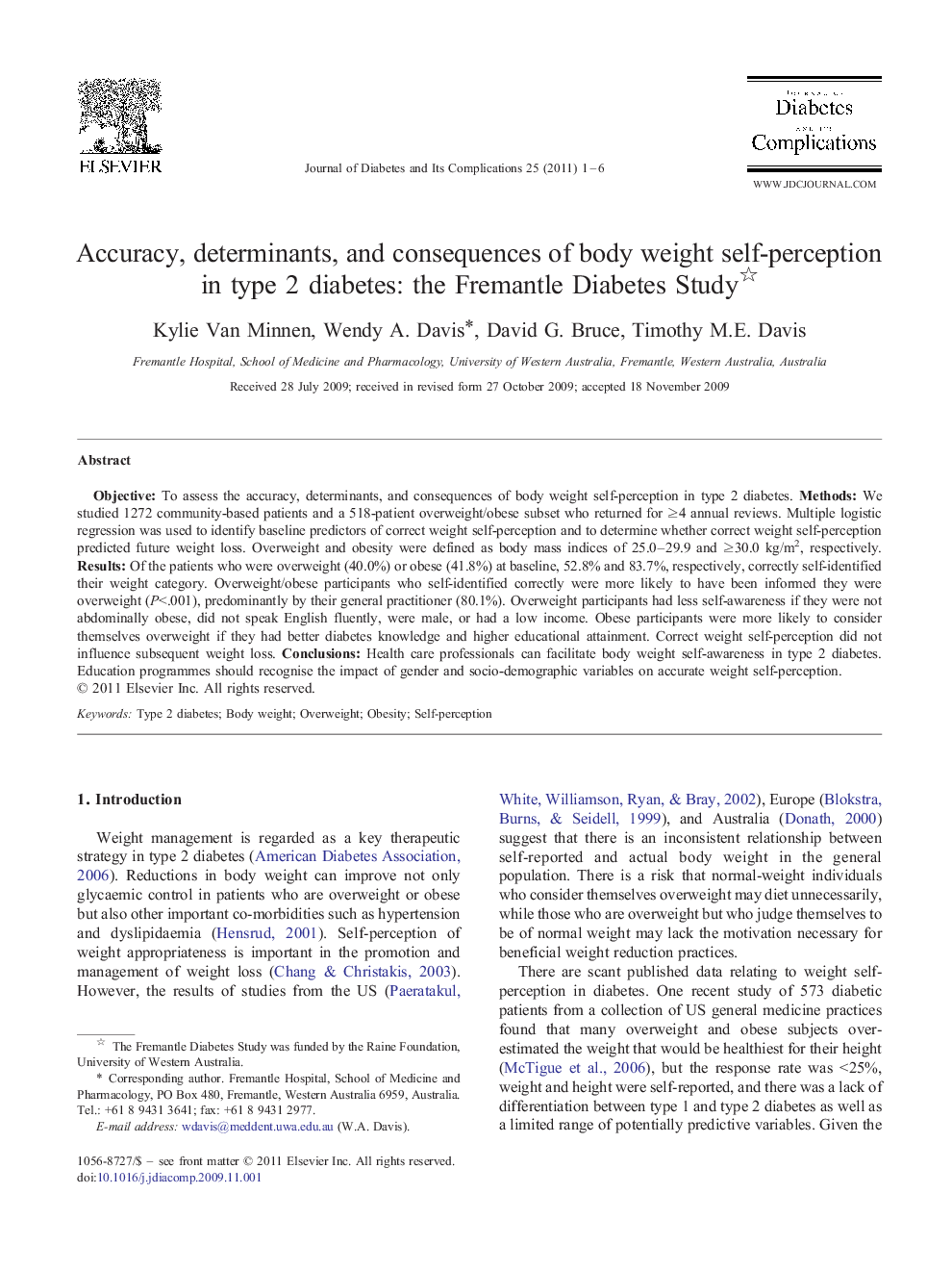| Article ID | Journal | Published Year | Pages | File Type |
|---|---|---|---|---|
| 2804499 | Journal of Diabetes and its Complications | 2011 | 6 Pages |
ObjectiveTo assess the accuracy, determinants, and consequences of body weight self-perception in type 2 diabetes.MethodsWe studied 1272 community-based patients and a 518-patient overweight/obese subset who returned for ≥4 annual reviews. Multiple logistic regression was used to identify baseline predictors of correct weight self-perception and to determine whether correct weight self-perception predicted future weight loss. Overweight and obesity were defined as body mass indices of 25.0–29.9 and ≥30.0 kg/m2, respectively.ResultsOf the patients who were overweight (40.0%) or obese (41.8%) at baseline, 52.8% and 83.7%, respectively, correctly self-identified their weight category. Overweight/obese participants who self-identified correctly were more likely to have been informed they were overweight (P<.001), predominantly by their general practitioner (80.1%). Overweight participants had less self-awareness if they were not abdominally obese, did not speak English fluently, were male, or had a low income. Obese participants were more likely to consider themselves overweight if they had better diabetes knowledge and higher educational attainment. Correct weight self-perception did not influence subsequent weight loss.ConclusionsHealth care professionals can facilitate body weight self-awareness in type 2 diabetes. Education programmes should recognise the impact of gender and socio-demographic variables on accurate weight self-perception.
